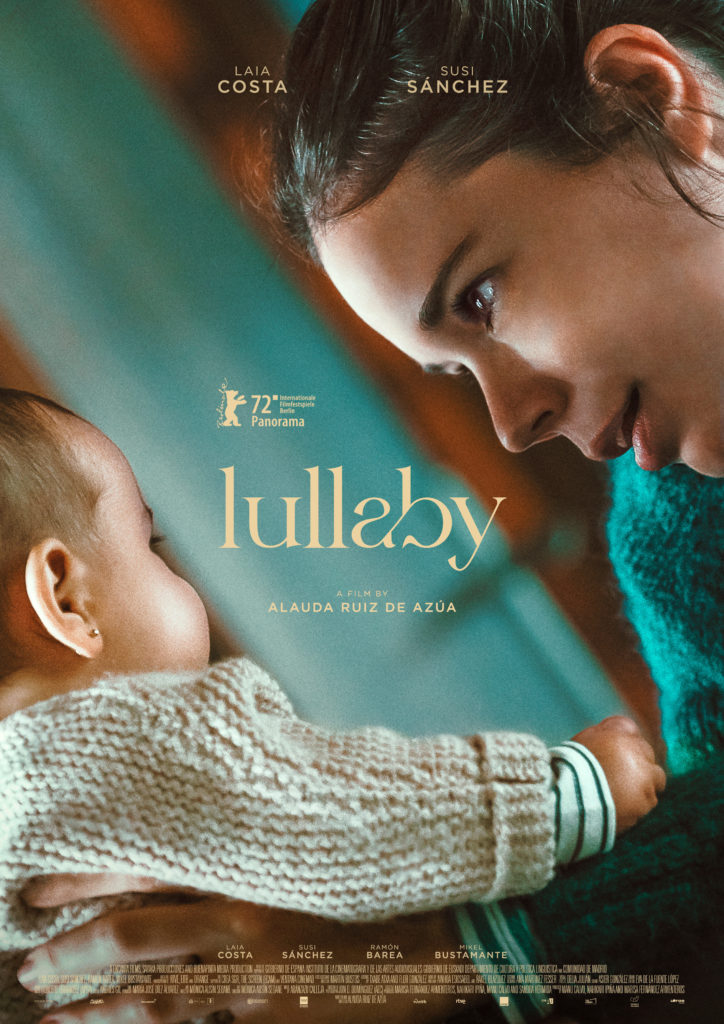By Zachariasz Czerwiński (he/him)
Artwork by Mary Martin (she/her)
This review is a part of our Glasgow Film Festival review series. The Film Festival is running between 01/03/23-12/03/23, don’t miss out and go and see some incredible new films.
Lullaby is the director Alauda Ruiz de Azúa’s debut feature length film, it premiered at last year’s Berlinale and received rave reviews at home in Spain. Its success internationally is also to be noted, it was picked as one of the Spanish entries for the Foreign Language Academy Award. Azúa has even landed himself a deal for a Netflix show because of it. This touching portrait of a young mother has now arrived for its UK premiere at the Glasgow Film Festival.
Be advised – watching Lullaby will make you want to call your mum and simply say thank you.
Lullaby is a film about caring. It follows Amaia (the brilliant Laia Costa), a thirty-five-year-old creative freelancer, who has just become a mother to little Joni. When her partner Javi (Mikel Bustamante) has to go away for work, leaving the struggling Amaia on her own, she decides to get help from her parents Begoña (Susi Sanchez) and Kaldo (Ramon Barea). Amaia goes to stay with her parents at their coastal home on the Bay of Biscay. Something she does not find easy. Amaia struggles to understand herself as a mother while she sleeps in her childhood bedroom, often clashing with her own mother over little things. What eventually brings them together is the titular lullaby. It is a story of five little wolf cubs called cinco lobitos, that the child hears first from their mother, and later from their grandmother.
The film’s central dynamic, between mother and daughter, serves to offer a generational perspective on caring, a role that fundamentally defines many women’s lives. It’s far from a rosy picture. We see Amaia cry so much, whether from physical pain or mental exhaustion. Azúa also shows the countless sacrifices of motherhood, from the smaller, day-to-day lack of personal time to the impact it has on significant life choices: having to turn down work, or even being forced to stay in a loveless relationship. Caring is very much a female role in Lullaby; the men are strikingly inept, providers but never present, lacking confidence, asking countless questions, never understanding what is required of them.
Filmed with a lovely naturalistic flair, Azúa notices beauty in simplicity, following life’s small moments with a stripped-down approach. With no soundtrack, the emotional impact of what we see on the screen is heightened. The way she swiftly follows the family between the cooking, cleaning and talking, is executed with a deft lightness, this is testament to her skill as an observer. There are many brilliant performances all round, but Laia Costa and Susi Sanchez deserve special praise.
It comes as no surprise to hear Pedro Almodóvar himself call it ‘the best debut in Spanish cinema for years’. Lullaby is a beautifully humanistic and empathetic picture, full of tears and screams and sighs and laughs, moments that touched me and moments that moved me. You won’t regret watching it.


